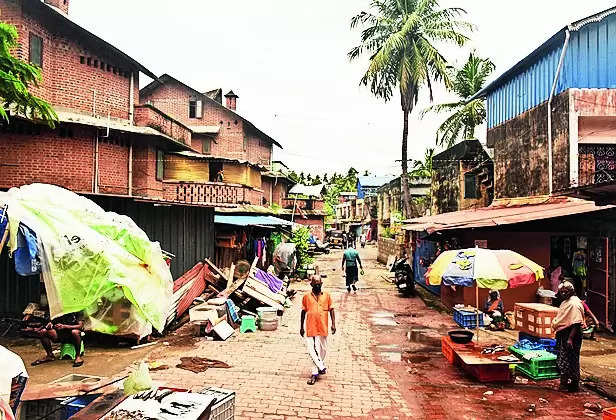
THIRUVANANTHAPURAM: The much-awaited revamp of Rajaji Nagar Colony in the state capital will be delayed further due to technical issues in the bid process.
Though Smart City Thiruvananthapuram Ltd (SCTL), the project’s implementing agency, had invited e-tenders, only two took part in the bid. Of the two, one company opted out as it could not meet the qualification criteria. The SCTL cannot move forward with a single bidder, and hence it must retender the project.
The bid for the project was opened in two stages in the last two weeks. A bidder was excluded during the technical evaluation of the project as the company did not meet the criteria of completing at least three works worth Rs 6cr each.
The SCTL is all set to revise the project estimate based on permission from the Election Commission (EC) as the model code of conduct has come into force.
“We cannot initiate and continue the tender process as the code of conduct is in force. The tender evaluation is still in progress. Since it will be a single tender, we cannot award the tender to the company. Hence, we must retender it. We were planning to start the retendering process within two weeks after getting the EC’s permission,” said a senior SCTL official.
The expected date of completion is not finalised, and it can be evaluated only after getting the final instalment of funds from Centre, likely in June, after the new govt comes into power.
Around 2,000 families presently live in 1,100 housing units of the colony. Phase I of the project proposes the construction of 248 units, a proper stormwater network, access roads, a parking facility, community facility, and a recreational facility. A temporary facility will be ready soon to rehabilitate 17 families here during the construction.
The project was delayed because a section of the people residing in the colony are not actual beneficiaries of it. It triggered protests from the residents, delaying the project further.
The actual plan is to complete the project in three phases. The colony is spread across 12.6 acres of land. The initial plan was to relocate around 189 families to facilitate the project, but now, owing to resistance, only a few families are being relocated.
Recently, the city corporation served eviction notices to around 40 families, citing that they have been residing illegally in the colony.
The civic body had also approached the Museum police to register a case against such illegal residents. The police have already registered a case and the legal proceedings are on.









